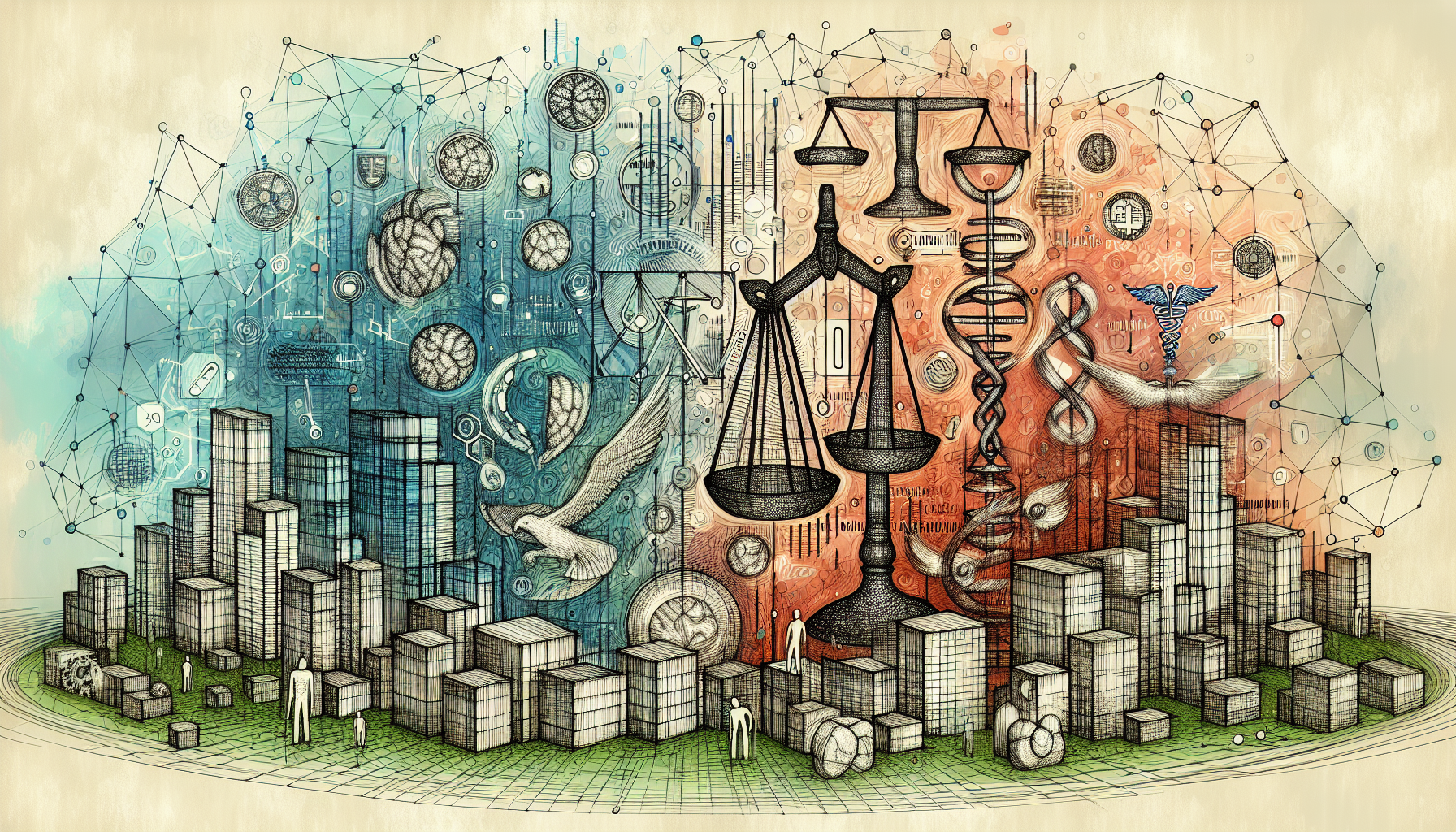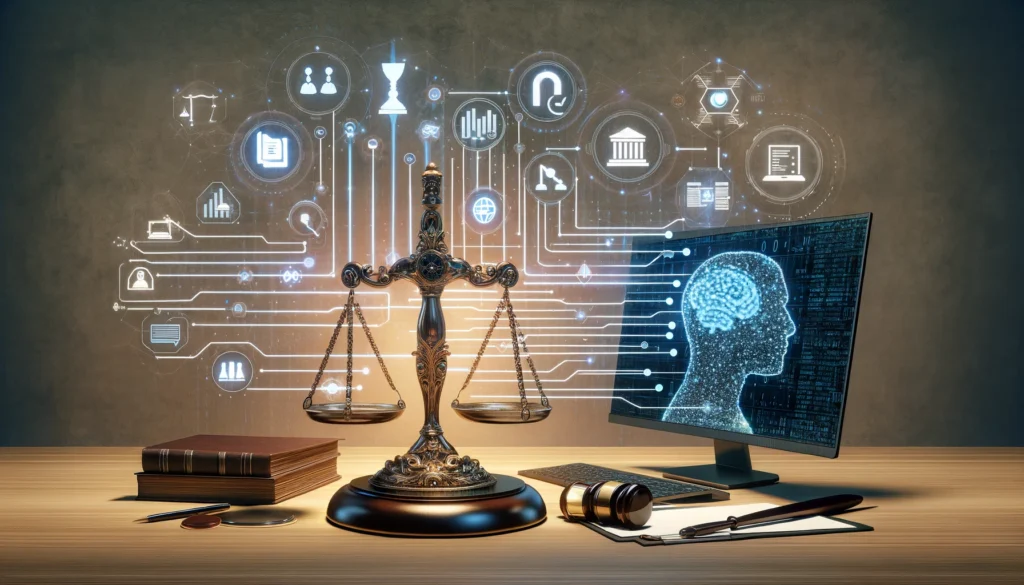
The New Era of Legal Work
Artificial Intelligence (AI) continues to revolutionize numerous sectors, and the legal industry is no exception. The integration of AI tools such as ChatGPT into legal environments has considerably transformed how legal professionals perform their day-to-day tasks. As organizations grow increasingly reliant on digital data, robust data privacy policies have become indispensable. These policies not only safeguard sensitive information but also ensure compliance with complex regulatory frameworks, making them vital for corporate governance and ethical business operations.
Efficiently crafting such policies can be a monumental task, but leveraging AI, specifically Legal Language Models (LLMs) like ChatGPT, offers a compelling solution. In the following sections, we will explore how ChatGPT can enhance policy drafting, streamline research, and uphold accuracy in the legal domain.
Leveraging LLMs for Legal Efficiency
ChatGPT and other Legal Language Models (LLMs) have the capability to interpret and generate human-like text, making them invaluable tools in the legal field. With their advanced natural language processing abilities, LLMs can draft documents, perform legal research, and even verify compliance with various regulations.
By incorporating these tools into legal practices, professionals can:
- Boost productivity: LLMs can handle time-consuming tasks such as initial drafts, allowing lawyers and paralegals to focus on more complex issues.
- Consistency: LLMs ensure uniformity across documents, which is critical for maintaining high standards in legal documentation.
- Cost savings: Automating repetitive tasks reduces the need for extensive manual labor, thereby lowering operational costs.
- Accessibility: LLMs can assist in making legal information more accessible to non-experts within an organization.
With these advantages, it’s evident why so many legal firms are integrating LLMs into their workflows. Next, we’ll delve into specific techniques for using ChatGPT to draft effective data privacy policies.
Innovative Prompt Techniques for Policy Drafting
To generate high-quality outputs with ChatGPT, it’s essential to structure prompts effectively. The key lies in being explicit and detailed in your instructions, which helps guide the AI in producing more precise and relevant content.
Here are some prompt structuring techniques:
- Be Specific with Requirements: Outline the terms, objectives, and key points you need included in the policy.
- Use Examples: Provide sample clauses or sections to give the AI clear guidance on style and format.
- Focus on Structure: Indicate the desired structure, such as headings, subheadings, and bullet points, for clarity.
Consider these nuanced prompt examples for drafting comprehensive data privacy clauses:
“Draft a data privacy clause for a policy, ensuring it covers data collection consent, user rights under GDPR, and data storage security guidelines.”
“Develop a section on data breach procedures, outlining steps for detecting breaches, notifying affected parties, and mitigating damage according to CCPA standards.”
To maintain consistency, you can use LLMs to compare new drafts against previous documents, ensuring uniform legal language and style. This approach not only speeds up the drafting process but also guarantees a cohesive application of legal principles across all company policies.
Having established the basics of effective prompting, let’s examine how ChatGPT can expedite legal research and compliance checks.
Speeding Up Legal Research and Compliance Checks
Legal research is a cornerstone of effective legal practice, yet it often entails immense time and resources. ChatGPT can alleviate these burdens by facilitating swift and efficient research processes.
By crafting precise prompts, LLMs can quickly surface relevant legal precedents, statutes, and regulatory requirements. Here are some examples:
“Summarize the key provisions of GDPR Article 32 on data security measures.”
“Identify recent case law interpretations of ‘reasonable data protection’ under the CCPA.”
Additionally, you can use ChatGPT to verify compliance with specific regulations. For example, a prompt such as “Check if this data privacy policy aligns with GDPR and highlight any discrepancies” can help ensure that your documents meet legal standards.
With these tools at your disposal, verifying compliance becomes more efficient, allowing legal professionals to focus on higher-level strategic tasks. Next, we’ll explore techniques to enhance the accuracy and diligence in your legal work.
Enhancing Accuracy and Due Diligence
Accuracy and due diligence are paramount in legal practices, and ChatGPT can significantly aid in improving these aspects. By offering a multi-layered approach to document review, LLMs help ensure the reliability and thoroughness of your legal documents.
Here are some techniques for leveraging ChatGPT:
- Cross-Checking Facts: Use ChatGPT to verify facts and citations within your documents, ensuring all references are accurate.
- Reviewing Legal Precedents: The model can quickly review and summarize relevant legal precedents, aiding in the crafting of well-supported legal arguments.
- Proofreading: Utilize ChatGPT to proofread drafts for grammatical errors, typos, and inconsistencies in legal language.
For instance, a prompt like “Review this data privacy policy for any legal inaccuracies or ambiguities” can help you identify and rectify issues before finalizing the document. This meticulous approach not only enhances the quality of your work but also ensures a higher degree of legal compliance and precision.
While leveraging AI has its benefits, it’s crucial to remain cognizant of ethical considerations and limitations, which we will discuss in the next section.
Ethical Considerations and Limitations
Employing AI in legal practices involves significant ethical considerations. Ensuring the ethical use of LLMs like ChatGPT is vital to maintaining client trust, adhering to legal standards, and avoiding potential pitfalls.
Key ethical considerations include:
- Client Confidentiality: Ensure any client data used with LLMs remains confidential and secure.
- AI Limitations: Recognize that while LLMs can aid in drafting and research, they should not replace expert legal judgment.
- Bias and Fairness: Be aware of potential biases in AI outputs and mitigate them by cross-referencing with human expertise.
Understanding these boundaries and risks can help in responsibly integrating AI into legal practices, ensuring both efficiency and ethical integrity. In our final section, we offer practical tips and best practices for seamless AI integration.
Practical Tips and Best Practices
Integrating ChatGPT into your daily workflows can be seamless if approached strategically. Here are some practical tips and best practices:
- Start with Simple Tasks: Begin with straightforward tasks like document formatting or initial drafts to get accustomed to the tool’s capabilities.
- Continuous Learning: Regularly update your knowledge on AI advancements to leverage new features and improvements.
- Collaborative Use: Pair AI-generated drafts with human review to combine efficiency with expert insights.
- Feedback Loop: Provide feedback to the developers of the AI tools to improve functionality and adapt it to your specific needs.
By following these guidelines, you can maximize efficiency and minimize errors, making AI an invaluable asset in your legal toolkit. As the legal landscape continues to evolve, embracing AI technologies like ChatGPT will not only streamline operations but also elevate the quality of your legal practice.


